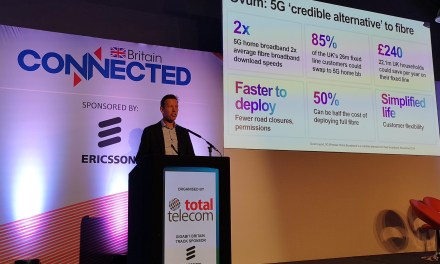News
New rules from the Federal Communications Commission (FCC) will now allow for possible instances of discrimination of broadband access to be investigated
Two years to the day after the passage of the Bipartisan Infrastructure Law, the Federal Communications Commission (FCC) has adopted new rules to help address digital discrimination in the United States.
The vote was passed by a 3-2 margin at the FCC’s November 15 meeting, where it was the first agenda item.
The new rules will define the term “digital discrimination of access” as “policies or practices not justified by genuine issues of technical or economic feasibility that differentially impact consumers’ access to broadband internet access service based on their income level, race, ethnicity, color, religion or national origin, or are intended to have such differential impact.”
The rules will now allow for possible instances of discrimination of broadband access to be investigated, and for potential penalties to be assessed against companies that fail to meet the obligations in the newly adopted rules.
Additionally, the rules will lead to the creation of an improved consumer complaint portal where consumer complaints of digital discrimination can be accepted.
FCC Chairwoman Jessica Rosenworcel addressed the new complaint process.
“We have created a process that is aimed at finding solutions that work for all parties,” she said. “And if that is not feasible, our enforcement bureau will step in with the entire enforcement toolkit at its disposal to seek remedies.”
Rosenworcel said the FCC would accept genuine reasons of technical and economic feasibility as valid reasons why it may not be possible to provide equal access to a provider’s network.
“And we’re going to review those defenses carefully and thoughtfully on a case-by-case basis,” she said.
She said the rules also create a way for ISPs to get guidance from the FCC “to make sure they stay on the right side of the law.”
She said Section 6506 of the Bipartisan Infrastructure Law, which directed the FCC to tackle digital discrimination, “is a big deal.” She called it the first bipartisan civil rights law focused on the digital age.
“I’m grateful to so many in the civil rights community that have helped us give it meaning,” Rosenworcel said. “And I’m grateful for the companies that worked with us to improve our process.”
Commissioner Brendan Carr, who had previously noted his strong opposition, offered lengthy comments dissenting to the proposed rules.
“The Biden Administration’s entire approach to the internet, it’s broadband agenda, if you will, can be boiled down to one single word: control,” Carr said.
Carr blasted also the president’s administration for what he called the administration’s “campaign to pressure internet companies into censoring the protected political speech of Americans.”
He said the digital equity rules would give the FCC “a nearly limitless power to veto private sector decisions.”
Commissioner Geoffrey Starks, who was in favor of the rules, said ending digital discrimination anywhere will empower individuals everywhere.
Starks said he was proud to support the proposed rules.
Starks said the trajectory of digital progress has not always been fair. He said the digital divide has held back America’s collective achievements as a nation and added that broadband access is essential for full participation in the American economy.
“It is our collective responsibility to ensure that the internet reaches all Americans everywhere,” he said, and added that he supports the creation of an office dedicated to civil rights within the FCC.
Commissioner Nathan Simington was the second dissenting vote to the proposed rules. Commissioner Anna M. Gomez joined Starks and Rosenworcel to support the newly adopted rules.
This article was first published on Total Telecom’s sister website, Broadband Communities


















